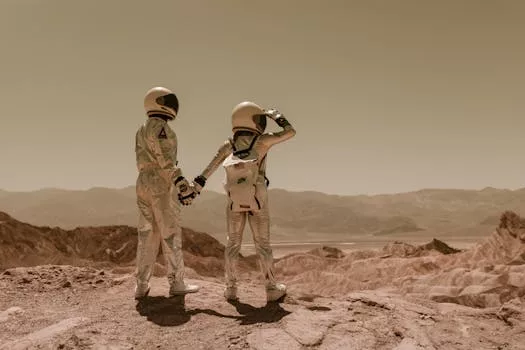
“
Soaring Through the Cosmos: The Power of Imagination Beyond the Stars
Introduction to the Cosmos and Imagination
The power of imagination is a boundless force that has driven human innovation and exploration throughout history. As we gaze up at the night sky, we are reminded of the infinite possibilities that lie beyond our planet. The cosmos, with its billions of stars, galaxies, and mysteries waiting to be unraveled, is the ultimate frontier for human imagination. In this article, we will explore the relationship between the cosmos and human imagination, and how this powerful combination can inspire us to reach for the stars.
The Wonders of the Cosmos
The cosmos is a vast expanse of time, space, and matter that has fascinated humans for centuries. From the majestic swirl of galaxies to the intricate dance of celestial bodies, the cosmos is a realm of breathtaking beauty and complexity. As we explore the cosmos, we are constantly reminded of the awe-inspiring scale and mystery of the universe. The cosmos is a place where stars are born and die, where planets collide and merge, and where the very fabric of space and time is woven and unwoven.
One of the most fascinating aspects of the cosmos is the sheer scale of its vastness. With an estimated 100-400 billion stars in the Milky Way galaxy alone, and over 100 billion galaxies in the observable universe, the cosmos is a realm of unimaginable proportions. And yet, despite its vastness, the cosmos is also a place of profound intimacy, where the laws of physics that govern our everyday lives are the same laws that govern the behavior of celestial bodies billions of light-years away.
The Power of Imagination in Space Exploration
Human imagination has played a crucial role in our exploration of the cosmos. From the early astronomers who first glimpsed the stars and planets, to the modern-day space agencies that send probes and astronauts to the farthest reaches of our solar system, imagination has been the driving force behind our quest for knowledge and discovery. The power of imagination has allowed us to envision new worlds, new civilizations, and new possibilities, and has inspired generations of scientists, engineers, and explorers to push the boundaries of what is thought possible.
One of the most iconic examples of the power of imagination in space exploration is the Apollo 11 mission, which successfully landed humans on the moon in 1969. The Apollo 11 mission was the culmination of years of meticulous planning, technological innovation, and sheer determination, and marked a major milestone in the history of space exploration. The success of the Apollo 11 mission was a testament to the power of human imagination, which had envisioned a future where humans could walk on the moon and explore the vast expanse of space. For more on this topic, check out Charting New Realms: The Journey of Imagination Beyond the Stars.
Takeaways and Conclusion
As we conclude our journey through the cosmos and the power of human imagination, we are reminded of the infinite possibilities that lie beyond our planet. The cosmos is a realm of wonder and discovery, where the laws of physics and the power of imagination come together to inspire us to reach for the stars. Whether we are scientists, engineers, artists, or simply curious individuals, the cosmos and its many mysteries offer a boundless source of inspiration and fascination.
Some key takeaways from our exploration of the cosmos and human imagination include:
- The power of imagination is a boundless force that can inspire us to reach for the stars and explore the vast expanse of the cosmos.
- The cosmos is a realm of breathtaking beauty and complexity, with billions of stars, galaxies, and mysteries waiting to be unraveled.
- Human imagination has played a crucial role in our exploration of the cosmos, from the early astronomers to the modern-day space agencies that send probes and astronauts to the farthest reaches of our solar system.
- The success of the Apollo 11 mission marked a major milestone in the history of space exploration and was a testament to the power of human imagination.




